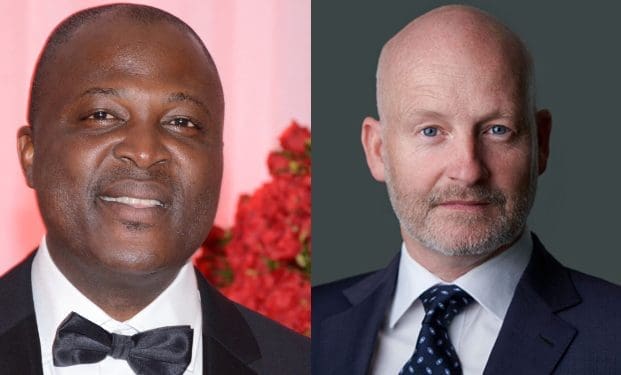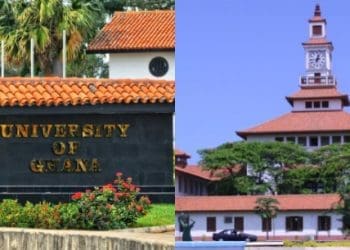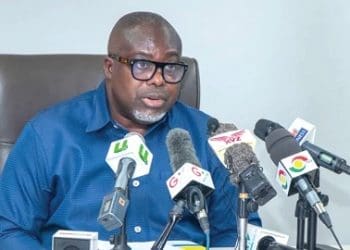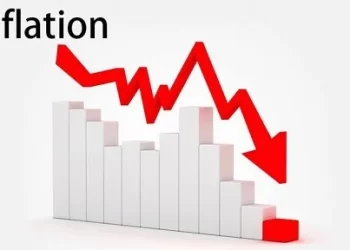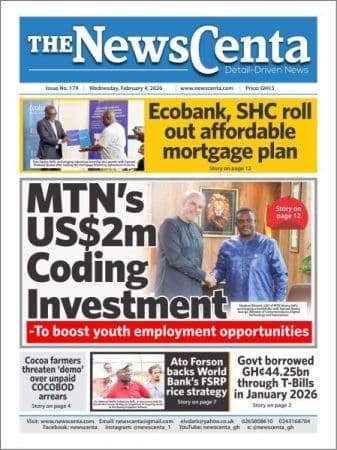Azumah Resources (Ghana) Limited has confirmed it is currently engaged in confidential, good-faith negotiations with Engineers & Planners (E&P), aimed at resolving the impasse over the $100 million Black Volta Gold Project in the Upper West Region.
The company, in a statement dated Sunday, July 13, 2025, emphasised its commitment to a “constructive and mutually acceptable resolution” and disclosed that the ongoing talks are taking place within the framework of Ghana’s laws, under the oversight of relevant regulatory and ministerial bodies.
“Azumah Resources is actively pursuing a professional, transparent, and responsible resolution of this matter and remains fully aligned with the broader interest of the Republic of Ghana and all stakeholders involved,” the statement noted.
Firm urges responsible commentary
Amid mounting public discourse and speculation over the protracted commercial dispute, Azumah Resources appealed to media outlets, policy commentators, and the general public to refrain from speculative reportage that could compromise the ongoing negotiations.
“We urge all media houses, analysts, and third parties to exercise discretion and refrain from speculative or misleading reportage that could potentially prejudice or distort the dialogue underway,” the statement added.
The company reiterated that all official communications about the matter should come through its designated spokesperson, Mr. John Kaku Mason, Aide to the Chairman, cautioning that the public should disregard commentary from unauthorised voices.
Azumah disassociates from Bright Simons’ comments
The firm issued a sharp disclaimer against recent public commentary by Bright Simons, Vice-President of IMANI Africa, clarifying that he does not represent Azumah Resources, its shareholders, or directors in any official capacity.
“Mr. Bright Simons does not represent, act on behalf of, or speak for the Shareholders or Directors of Azumah Resources Ghana in any capacity. His public commentary constitutes his personal opinion and should not be construed, implied, or interpreted as reflective of the official position, intentions, or legal standing of Azumah Resources or its Shareholders,” the statement stressed.
Simons, a well-known policy analyst and social innovator, had commented on the dispute in recent media interviews and online posts, prompting Azumah’s swift public rebuttal in an effort to contain misinformation and manage the reputational implications of the ongoing legal and commercial battle.
How a $100m deal sparked legal showdown
At the heart of the controversy is the Black Volta Gold Project, a promising large-scale mining concession in Ghana’s Upper West Region, initially held by Azumah Resources.
On October 9, 2023, Azumah entered into a $100 million acquisition agreement with E&P, a Ghanaian-owned mining and engineering firm led by businessman Ibrahim Mahama.
The deal was lauded as a milestone for indigenous participation in Ghana’s lucrative gold mining industry.
According to E&P’s version of events, Azumah’s shareholders were motivated to sell due to declining global gold prices at the time and security concerns stemming from instability in neighbouring Burkina Faso.
Following the agreement, E&P claims it began funding operational costs for the project, spending an average of $500,000 per month from November 2023.
However, the relationship between the two parties deteriorated dramatically in August 2024 when Azumah’s James Wallbank, allegedly sought to revise the agreed purchase price from $100 million to $300 million.
Citing the rebound in global gold prices, Wallbank reportedly claimed the initial valuation was no longer adequate.
E&P rejected the revised figure, triggering arbitration proceedings in October 2024.
Tensions escalated further when Azumah attempted to unilaterally terminate the agreement in December 2024.
Court upholds the original agreement
A turning point came in June 2025 when a High Court in Ghana reportedly upheld the legality and enforceability of the original $100 million agreement, effectively invalidating Azumah’s unilateral termination.
E&P then secured a $100 million facility from the ECOWAS Bank for Investment and Development (EBID) to finance the acquisition.
The official signing of the financing agreement took place on July 7, 2025, in what was seen as a significant milestone for the local company.
Clarifying EBID’s involvement
In a related clarification, Azumah Resources addressed public references to EBID’s role in the dispute, expressing regret over what it described as the “unwarranted and inaccurate inclusion” of the bank in speculative discussions.
“Representatives of Azumah Resources and E&P visited EBID’s offices in Lomé, Togo, in 2023 to assess the Bank’s capacity and willingness to support the transaction. EBID expressed indicative interest, contingent on its internal credit appraisal and Board approval. Any extrapolations beyond this context are both inappropriate and unauthorised,” the company explained.
The clarification was widely seen as a move to protect EBID’s institutional reputation and to limit potential diplomatic and financial fallout.
Lands Ministry steps in with ultimatum
With the dispute entering its most public and sensitive phase, the Ministry of Lands and Natural Resources has reportedly intervened to prevent further escalation.
Under the leadership of Minister Emmanuel Armah-Kofi Buah, the Ministry has issued a seven-day ultimatum to both Azumah Resources and E&P—starting July 10, 2025—to reach a compromise.
“Failure to reach a resolution within this timeframe would compel the government to decide on the best interest of the country,” a source at the Ministry told this paper.
This government ultimatum underscores the high stakes involved—not only for the two companies but also for the broader investment climate in Ghana’s mining sector, which accounts for a significant portion of national export earnings and employment.
A defining moment for indigenous mining
The Azumah-E&P dispute, while troubling, serves as a test case for the viability and maturity of Ghana’s regulatory frameworks governing extractive industry agreements, particularly those involving local firms and foreign investors.
While both companies have reaffirmed their willingness to resolve the matter professionally, the outcome will likely shape investor sentiment, policy direction, and future partnerships in Ghana’s mining landscape.

